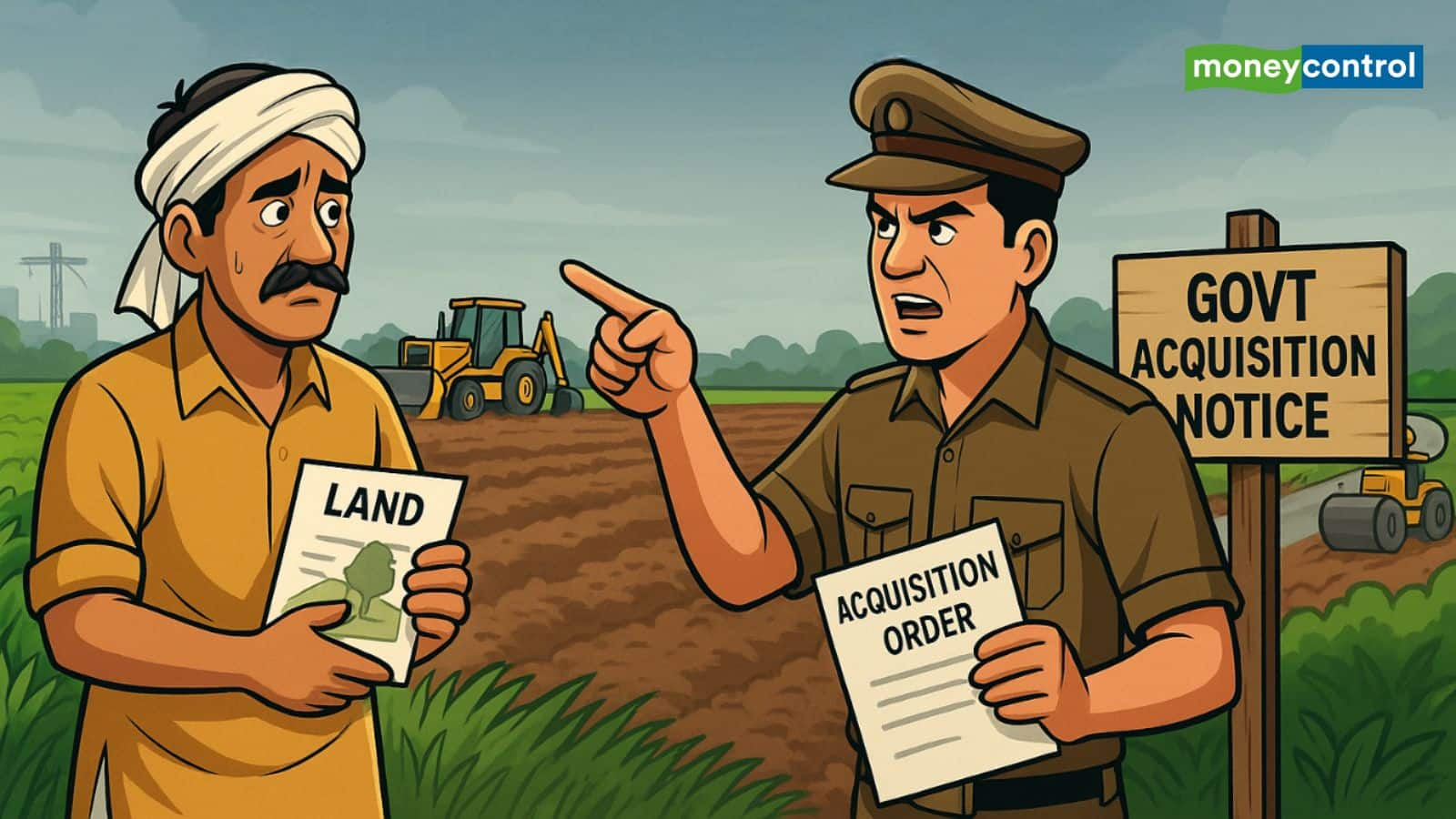
Land acquisition rules: Land acquisition has become a very sensitive issue with infrastructure and expansion of industrial projects across the country. In such a situation, the question often arises whether the government can take the land of a citizen without its consent? The answer is – yes, it can be taken in some situations. However, it has a fixed legal process, which cannot be ignored.
What is the Constitution and Law in the matter of taking land?
The government has the right to take land from the public in ‘public interest’. Both the Constitution and Acquisition Act of the country allow it. Currently, the government acquires land under the ‘Right to Fair Compensation and Transparency in Land Acquisition, Rehabilitation and Rettlement Act, 2013’ (LARR Act).
This law ensures that whenever the government or private company takes land in ‘public interest’, the landowners and affected families get proper compensation. If a house goes to the acquisition, a new house, or its reasonable price, or construction is helped.
This law was replaced by the old Land Acquisition Act of 1894 to increase transparency, prevent force acquisition and assess social impact. It provides for at least 2 times the market price in rural areas and 1 times in urban areas. At the same time, the imperative of resettling the affected family and social consent has also been decided.
What is the attitude of the Supreme Court on land acquisition?
The Supreme Court completely clarified its view on land acquisition in the ‘Sukh Dutt Ratra vs Himachal Pradesh State’ (2022) case. He said in his judgment that the government cannot forcibly take possession of a person’s personal property without giving a legal process and without compensation. The case was related to Article 300-A of the Indian Constitution, which says that no person can be denied his property without a law-authorized procedure.
The court clearly stated that the acquisition without a process is not only a violation of the constitution, but it is also a violation of human rights. The Supreme Court said in two words that if the government has to take someone’s land, it will have to follow the fixed process of land acquisition and it is mandatory to give appropriate compensation.
Is it necessary to get consent in land acquisition?
The answer depends on the matter on what work the land is being taken for. According to Larr Act, 2013, it is necessary to take consent in some cases. At the same time, land can be taken without consent in some cases. However, in both circumstances, arrangements will have to be made for compensation and then the affected families.
| Nature of acquisition | Is consent necessary? |
| Government projects (eg road, railway) | No |
| Private projects |
Yes, 80% of land owners consent is necessary |
| Public-private partnership (ppp) |
Yes, 70% consent is necessary |
This means that the government can acquire land by giving compensation for work like road or railway tracks. Whether you agree or not, it does not matter. However, if a private company wants to start a project in an area, it cannot take the land until it has received written approval of a large number of land owners. ,
How much compensation will be available in land acquisition?
Better compensation has been arranged for the affected in the Larr Act. The market value will be available at least 2 times as compensation in rural areas. At the same time, 1 fold is given in urban areas. Apart from this, there is also a provision for rehabilitation, cash help and alternative land or job.
However, there have been disputes about ‘market price’. The government ‘circle rate’ is much lower than the ground reality. This makes farmers and land owners feel cheated.
Can you refuse to give land?
If the land acquisition is in public interest and the legal process is followed, the right to deny personally is limited. However, in some situation the affected person or group may file a petition in the court. Such as :
- There should be disturbances in the acquisition process.
- There is no justice in rehabilitation or compensation.
- Consent should be violated.
Strict and popular decisions of courts
The judiciary from time to time has clarified that transparency and reality of public interest are necessary in land acquisition. The Supreme Court has also commented, “Public interest in land acquisition should be a meaningful objective, not a formal excuse.”
If we talk about some major land acquisition cases, then the most popular Singur case (West Bengal) was. In this, the Supreme Court ordered the return of the land taken for Tata Motors to the farmers. At the same time, during the formation of Yamuna Expressway (Uttar Pradesh), there was a dispute over the farmers getting less compensation and the land allotted to private builders later. In the industrial areas of Haryana and Rajasthan, long legal battles were made for rehabilitation and transparency.
ALSO READ: EXPLAINED: Will you have to pay tax on selling cultivated land? What do government rules say